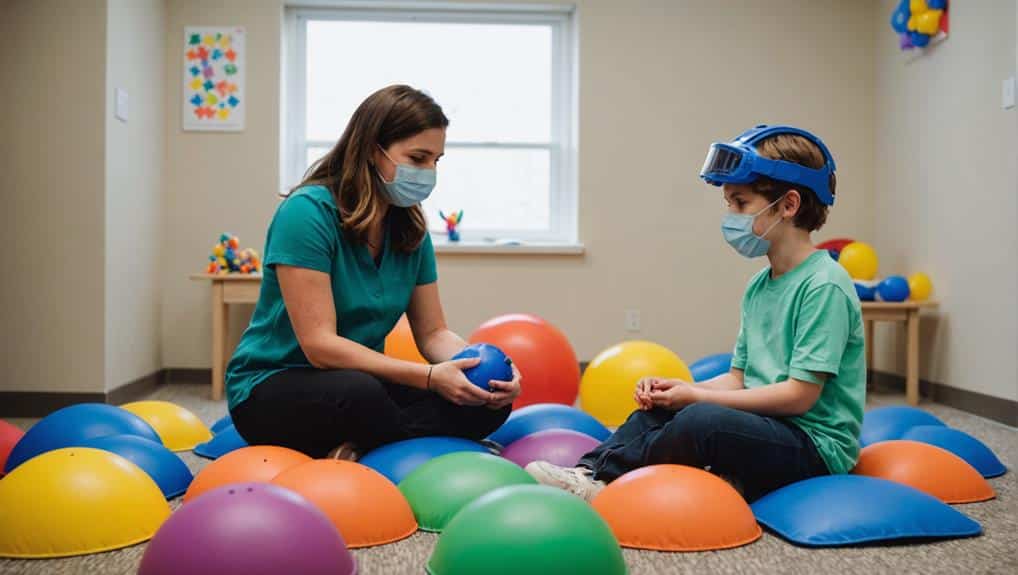
14 Oct How Pediatric Neurology Can Aid in Understanding Learning Disabilities
Pediatric neurologists assess children who show signs of child developmental delay, combining observations with specialized testing to understand each child’s needs. These delays, which can affect age-appropriate milestones and learning abilities, vary widely in their presentation and impact. Here are a few things to know about how pediatric neurology can aid in understanding learning disabilities:
Developmental Milestones
Children follow predictable patterns as they grow, and language development is one of the clearest markers of typical progression. Most begin speaking around two years old and form complete sentences by age three, reflecting their cognitive and communication growth. Monitoring these milestones helps caregivers track development and identify potential child developmental delay.
When children fall behind expected milestones, a professional evaluation can clarify the situation. Pediatric neurologists assess whether delays stem from neurological factors and distinguish between temporary setbacks and areas needing ongoing support. This understanding gives families insight into their child’s specific needs and guides decisions about next steps in development.
Common Causes
Several factors contribute to developmental delays in children, including low birth weight, premature birth, and a family history of speech or developmental challenges. Hearing impairments can affect language processing, while autism spectrum disorders may reduce verbal engagement and encourage alternative communication. Intellectual disabilities can slow the acquisition of language and other milestones. Each child’s abilities and needs vary, emphasizing the value of individualized evaluation and support.
Assessment Process
Pediatric neurologists conduct comprehensive evaluations to understand each child’s unique situation, examining language abilities, cognitive function, and neurological development. These assessments often include hearing tests to rule out auditory issues, neurological examinations to evaluate brain function, and developmental screenings to measure progress against age-appropriate expectations.
Parents share detailed information about their child’s developmental history, including milestones such as first babbling, words, and sentences, which helps create a complete picture of progress. Collaboration with audiologists, speech therapists, and other developmental specialists strengthens diagnostic accuracy and supports a coordinated, comprehensive approach to care.
Treatment Approaches
Treatment plans for developmental delays focus on each child’s specific needs, addressing the underlying causes of challenges in communication, learning, or behavior. Speech therapy guides children through exercises and activities to improve language skills. Hearing impairments are addressed with hearing aids or other assistive devices, helping children access the sounds needed for language learning. Children with autism benefit from tailored communication strategies, and medical management supports development when neurological conditions are involved.
- Speech Therapy: Exercises and activities to improve communication skills
- Hearing Support: Hearing aids or assistive devices for better sound perception
- Autism-Focused Strategies: Visual supports, structured verbal interactions, and personalized approaches
- Medical Management: Monitoring and treatment of neurological conditions affecting development
Long-term Outcomes
Early intervention provides guidance and support for children showing developmental delays, helping them work toward age-appropriate milestones. The timing of support can influence the pace of progress, and children often respond differently to early assistance. Pediatric neurologists observe and assess progress throughout the process, adjusting approaches as needed to fit each child’s situation.
Ongoing monitoring keeps support aligned with a child’s evolving needs. Some children continue receiving assistance through their school years, while others may transition out of structured support after early guidance. This variability reflects the complexity of developmental processes and the value of individualized attention.
Schedule Evaluation for Child Developmental Delay
Parents who notice developmental delays can seek professional evaluation to explore potential neurological factors. Keeping records of milestones, behaviors, and concerns provides context for a thorough assessment. Working with a specialized team helps address multiple aspects of a child’s needs while supporting growth. Families can schedule a consultation to discuss guidance and resources tailored to their child.


No Comments